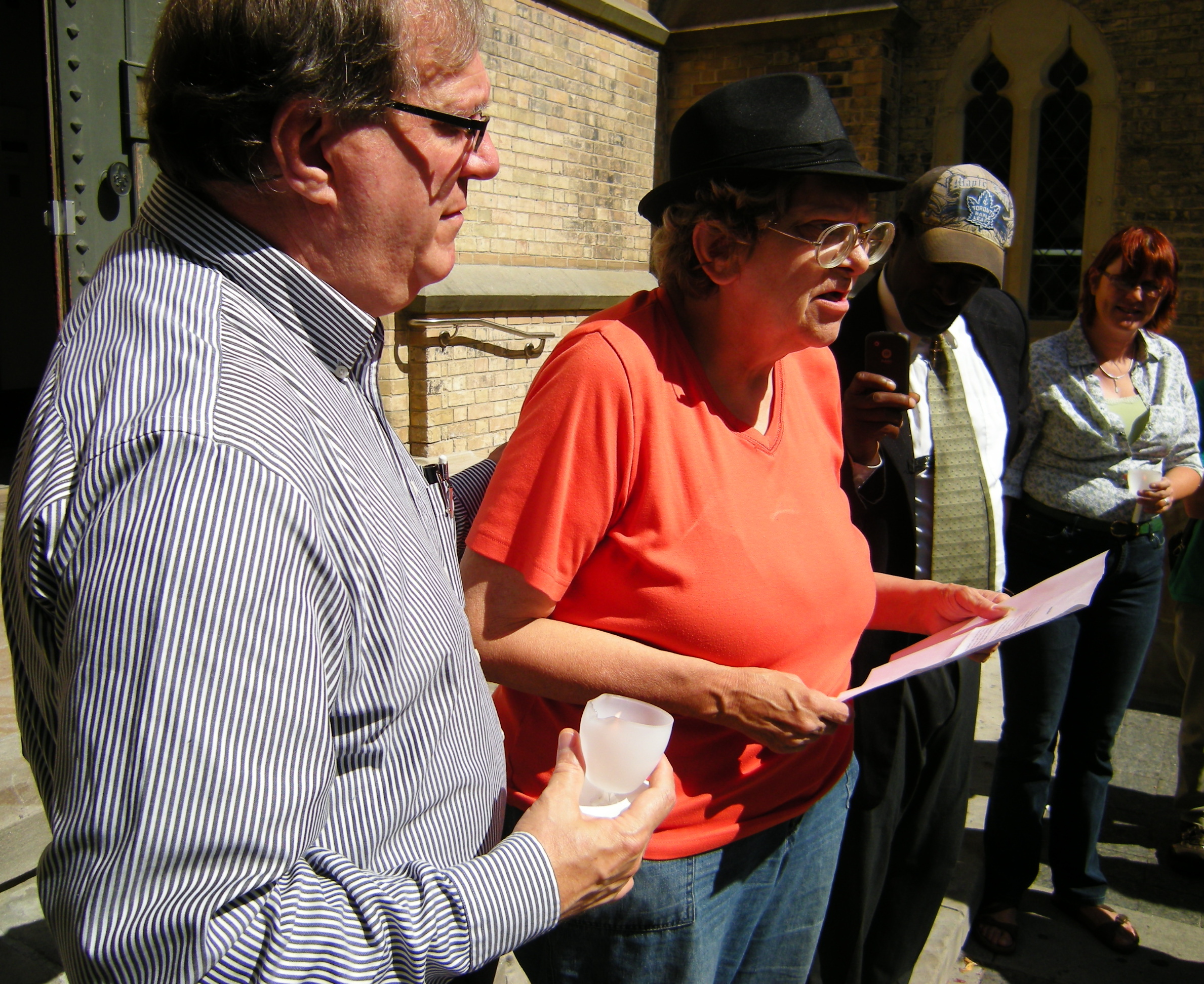Louis Quinn died debt-ridden.
Yet the 66-year-old hadn’t maxed out his credit cards. Or borrowed heavily. He didn’t have a mortgage. No gambling debts or car payments.
In August, he suffered a massive heart attack. He spent a few days on life support before he died.
A memorial service will be held for Quinn at the Fred Victor Centre on Monday, September 17 at 1 pm.
“Louis was a lovely man,” said D. K. “Very lovely, very quiet, Very private. But also a very gentle human being.
He’d amassed somewhere between $20,000 and $30,000 in unpaid fines for panhandling and encumbering a sidewalk.
“Which he was very proud of,” said D.K.
His favorite spot was the corner of Queen and Victoria Streets, right next to St. Michael’s hospital in Toronto, where D.K. would meet up with him occasionally.
Although Quinn had spent a major portion of his life living on the streets, he’d been housed for about a month at the time of his death.
But like many poor and homeless people in Toronto, Quinn was forced to panhandle to meet his basic needs. And like many, he was ticketed almost daily by Toronto police.
A year ago, D.K. began collecting his tickets and handing them over to Fair Change Community Services, a group of volunteer law students that provides legal services to individuals who are engaged in street-based activities such as panhandling or “squeegeeing,” or in some other capacity seeking to solicit funds on a “spare change” basis.
Last Thursday, Sanctuary Ministries held a forum on the impact of social profiling of people who are homeless.
Research from the Wellesley Institute and others shows that people who are homeless report a higher level of criminal assaults, including assaults by police, and more negative interactions.
“A researcher estimates it’s costing the police over $1 million dollars a year just to issue tickets under the Safe Streets Act,” said housing activist Michael Shapcott.
“The amount of unpaid fines is in the millions. And the City sells those unpaid fines to private collection agencies who then harass people to get the money.”
If they don’t pay up it goes against their credit rating.
Then if they do manage to make it back on their feet, their negative credit rating rating could prevent them from obtaining a credit card, renting an apartment, leasing a car or even acquiring a cell phone contract.
One year after leaving the streets, Kevin Clarke said he’s drug free, has a home and is now in a position to help others.
“If we use people who have turned their life around drastically, I believe that we are going to make inroads,” said Clarke.
A year from now, Clarke hopes to have a huge number of formerly homeless people standing in front of the Homeless Memorial, outside the Church of the Holy Trinity, who can claim that by working together, they were able to secure permanent, affordable housing.
The Homeless Memorial vigil takes place on the second Tuesday of every month to remember those who’ve died on the streets of Toronto the previous month.
Three names were added to the Memorial on Tuesday.
In October, when federal politicians return to Ottawa, a new piece of legislation will be debated in second reading to create a National Housing Act.
Canada is one of the few countries in the world that doesn’t have a national housing plan or a guarantee that everyone has a place to call home.
“Our current national government probably won’t support it,” said Shapcott. “But all the other political parties will so.”
Closer to home, Toronto continues to set records in terms of the amount of new housing constructions.
“But it’s not the right type of housing,” said Shapcott. “One of the ways to correct that is through an Inclusionary Housing Bill.”
An inclusionary housing policy would increase the supply of affordable housing by mandating new housing constructions include a certain percentage of affordable units.
“Because we’re in a minority government situation in Ontario, there’s a real good chance that this legislation may actually get through,” he said.
“It won’t end homelessness, but it will help to deliver a lot more affordable housing.”



